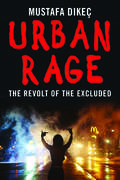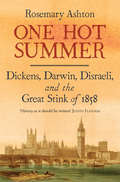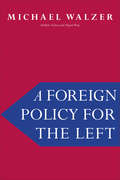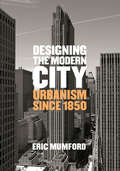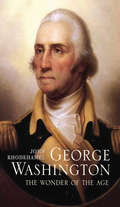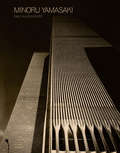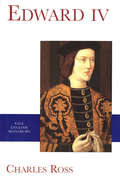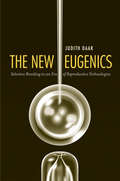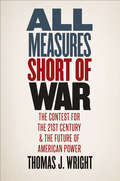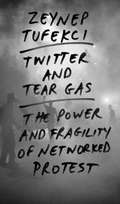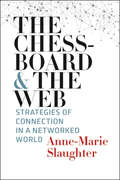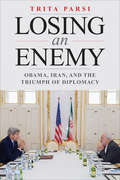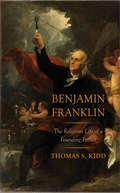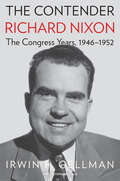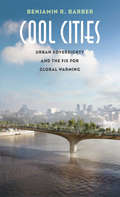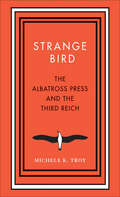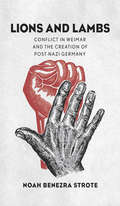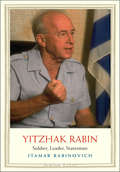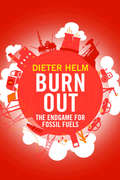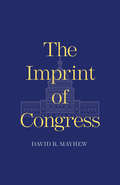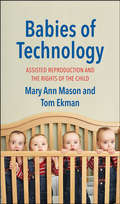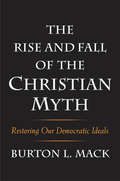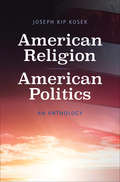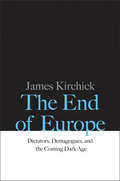- Table View
- List View
Urban Rage: The Revolt of the Excluded
by Mustafa DikecA timely and incisive examination of contemporary urban unrest that explains why riots will continue until citizens are equally treated and politically included In the past few decades, urban riots have erupted in democracies across the world. While high profile politicians often react by condemning protestors’ actions and passing crackdown measures, urban studies professor Mustafa Dikeç shows how these revolts are in fact rooted in exclusions and genuine grievances which our democracies are failing to address. In this eye-opening study, he argues that global revolts may be sparked by a particular police or government action but nonetheless are expressions of much longer and deep seated rage accumulated through hardship and injustices that have become routine. Increasingly recognized as an expert on urban unrest, Dikeç examines urban revolts in the United States, United Kingdom, France, Sweden, Greece, and Turkey and, in a sweeping and engaging account, makes it clear that change is only possible if we address the failures of democratic systems and rethink the established practices of policing and political decision-making.
One Hot Summer: Dickens, Darwin, Disraeli, and the Great Stink of 1858
by Rosemary AshtonA unique, in-depth view of Victorian London during the record-breaking summer of 1858, when residents both famous and now-forgotten endured “The Great Stink” together While 1858 in London may have been noteworthy for its broiling summer months and the related stench of the sewage-filled Thames River, the year is otherwise little remembered. And yet, historian Rosemary Ashton reveals in this compelling microhistory, 1858 was marked by significant, if unrecognized, turning points. For ordinary people, and also for the rich, famous, and powerful, the months from May to August turned out to be a summer of consequence. Ashton mines Victorian letters and gossip, diaries, court records, newspapers, and other contemporary sources to uncover historically crucial moments in the lives of three protagonists—Charles Dickens, Charles Darwin, and Benjamin Disraeli. She also introduces others who gained renown in the headlines of the day, among them George Eliot, Karl Marx, William Thackeray, and Edward Bulwer Lytton. Ashton reveals invisible threads of connection among Londoners at every social level in 1858, bringing the celebrated city and its citizens vibrantly to life.
A Foreign Policy for the Left
by Michael WalzerSomething that has been needed for decades: a leftist foreign policy with a clear moral basis Foreign policy, for leftists, used to be relatively simple. They were for the breakdown of capitalism and its replacement with a centrally planned economy. They were for the workers against the moneyed interests and for colonized peoples against imperial (Western) powers. But these easy substitutes for thought are becoming increasingly difficult. Neo-liberal capitalism is triumphant, and the workers’ movement is in radical decline. National liberation movements have produced new oppressions. A reflexive anti-imperialist politics can turn leftists into apologists for morally abhorrent groups. In Michael Walzer’s view, the left can no longer (in fact, could never) take automatic positions but must proceed from clearly articulated moral principles. In this book, adapted from essays published in Dissent, Walzer asks how leftists should think about the international scene—about humanitarian intervention and world government, about global inequality and religious extremism—in light of a coherent set of underlying political values.
Designing the Modern City: Urbanism Since 1850
by Eric MumfordA comprehensive new survey tracing the global history of urbanism and urban design from the industrial revolution to the present. Written with an international perspective that encourages cross-cultural comparisons, leading architectural and urban historian Eric Mumford presents a comprehensive survey of urbanism and urban design since the industrial revolution. Beginning in the second half of the 19th century, technical, social, and economic developments set cities and the world’s population on a course of massive expansion. Mumford recounts how key figures in design responded to these changing circumstances with both practicable proposals and theoretical frameworks, ultimately creating what are now mainstream ideas about how urban environments should be designed, as well as creating the field called “urbanism.” He then traces the complex outcomes of approaches that emerged in European, American, and Asian cities. This erudite and insightful book addresses the modernization of the traditional city, including mass transit and sanitary sewer systems, building legislation, and model tenement and regional planning approaches. It also examines the urban design concepts of groups such as CIAM (International Congresses of Modern Architecture) and Team 10, and their adherents and critics, including those of the Congress for the New Urbanism, as well as efforts toward ecological urbanism. Highlighting built as well as unbuilt projects, Mumford offers a sweeping guide to the history of designers’ efforts to shape cities.
George Washington: The Wonder of the Age
by John RhodehamelDiscover the man behind the myth: &“The only Washington biography you need…Crisply written, admirably concise, and never superficial.&”—TheWall Street Journal As editor of the award-winning Library of America collection of George Washington&’s writings and a curator of the great man&’s original papers, John Rhodehamel has established himself as an authority of our nation&’s preeminent founding father and first president. In this book, Rhodehamel examines George Washington as a public figure, arguing that the man—who first achieved fame in his early twenties—is inextricably bound to his mythic status. Solidly grounded in Washington&’s papers and exemplary in its brevity, this approachable biography is a superb introduction to the leader whose name has become synonymous with America. &“A highly entertaining book…The powdered wig, the silly pants, the poker face staring out from crumpled dollar bills: All serve to separate us from our founding father. Rhodehamel&’s urgency of prose restores the connection. He also showcases his experience as the former archivist of Mount Vernon by bringing manuscript sources directly to the reader.&”—TheNew York Times Book Review
Minoru Yamasaki: Humanist Architecture for a Modernist World
by Dale Allen GyureThe first book to reevaluate the evocative and polarizing work of one of midcentury America’s most significant architects Born to Japanese immigrant parents in Seattle, Minoru Yamasaki (1912–1986) became one of the towering figures of midcentury architecture, even appearing on the cover of Time magazine in 1963. His self-proclaimed humanist designs merged the modern materials and functional considerations of postwar American architecture with traditional elements such as arches and colonnades. Yamasaki’s celebrated and iconic projects of the 1950s and ’60s, including the Lambert–St. Louis Airport and the U.S. Science Pavilion in Seattle, garnered popular acclaim. Despite this initial success, Yamasaki’s reputation began to decline in the 1970s with the mixed critical reception of the World Trade Center in New York, one of the most publicized projects in the world at the time, and the spectacular failure of St. Louis’s Pruitt-Igoe Apartments, which came to symbolize the flaws of midcentury urban renewal policy. And as architecture moved in a more critical direction influenced by postmodern theory, Yamasaki seemed increasingly old-fashioned. In the first book to examine Yamasaki’s life and career, Dale Allen Gyure draws on a wealth of previously unpublished archival material, and nearly 200 images, to contextualize his work against the framework of midcentury modernism and explore his initial successes, his personal struggles—including with racism—and the tension his work ultimately found in the divide between popular and critical taste.
Richard III
by Charles RossRichard III ruled England for a mere twenty-six months, yet few English monarchs remain as compulsively fascinating, and none has been more persistently vilified. In his absorbing and universally praised account, Charles Ross assesses the king within the context of his violent age and explores the critical questions of the reign: why and how Richard Plantagenet usurped the throne; the belief that he ordered the murder of "the Princes in the Tower"; the events leading to the battle of Bosworth in 1485; and the death of the Yorkist dynasty with Richard himself. In a new foreword, Professor Richard A. Griffiths identifies the attributes that have made Ross's account the leading biography in the field, and assesses the impact of the research published since the book first appeared in 1981. "A fascinating study on a perennially fascinating topic… the base against which will be measured any future research."--Times Higher Education Supplement
Edward IV
by Charles RossIn his own time Edward IV was seen as an able and successful king who rescued England from the miseries of civil war and provided the country with firm, judicious, and popular government. The prejudices of later historians diminished this high reputation, until recent research confirmed Edward as a ruler of substantial achievement, whose methods and policies formed the foundation of early Tudor government. This classic study by Charles Ross places the reign firmly in the context of late medieval power politics, analyzing the methods by which a usurper sought to retain his throne and reassert the power of a monarchy seriously weakened by the feeble rule of Henry VI. Edward's relations with the politically active classes—the merchants, gentry, and nobility—form a major theme, and against this background Ross provides an evaluation of the many innovations in government on which the king's achievement rests.
The New Eugenics: Selective Breeding in an Era of Reproductive Technologies
by Prof. Judith DaarA provocative examination of how unequal access to reproductive technology replays the sins of the eugenics movement Eugenics, the effort to improve the human species by inhibiting reproduction of "inferior" genetic strains, ultimately came to be regarded as the great shame of the Progressive movement. Judith Daar, a prominent expert on the intersection of law and medicine, argues that current attitudes toward the potential users of modern assisted reproductive technologies threaten to replicate eugenics' same discriminatory practices. In this book, Daar asserts how barriers that block certain people's access to reproductive technologies are often founded on biases rooted in notions of class, race, and marital status. As a result, poor, minority, unmarried, disabled, and LGBT individuals are denied technologies available to well-off nonminority heterosexual applicants. An original argument on a highly emotional and important issue, this work offers a surprising departure from more familiar arguments on the issue as it warns physicians, government agencies, and the general public against repeating the mistakes of the past.
All Measures Short of War: The Contest for the Twenty-First Century and the Future of American Power
by Thomas WrightA groundbreaking look at the future of great power competition in an age of globalization and what the United States can do in response The two decades after the Cold War saw unprecedented cooperation between the major powers as the world converged on a model of liberal international order. Now, great power competition is back and the liberal order is in jeopardy. Russia and China are increasingly revisionist in their regions. The Middle East appears to be unraveling. And many Americans question why the United States ought to lead. What will great power competition look like in the decades ahead? Will the liberal world order survive? What impact will geopolitics have on globalization? And, what strategy should the United States pursue to succeed in an increasingly competitive world? In this book Thomas Wright explains how major powers will compete fiercely even as they try to avoid war with each other. Wright outlines a new American strategy—Responsible Competition—to navigate these challenges and strengthen the liberal order.
Twitter and Tear Gas: The Power and Fragility of Networked Protest
by Zeynep TufekciA firsthand account and incisive analysis of modern protest, revealing internet-fueled social movements’ greatest strengths and frequent challenges To understand a thwarted Turkish coup, an anti–Wall Street encampment, and a packed Tahrir Square, we must first comprehend the power and the weaknesses of using new technologies to mobilize large numbers of people. An incisive observer, writer, and participant in today’s social movements, Zeynep Tufekci explains in this accessible and compelling book the nuanced trajectories of modern protests—how they form, how they operate differently from past protests, and why they have difficulty persisting in their long-term quests for change. Tufekci speaks from direct experience, combining on-the-ground interviews with insightful analysis. She describes how the internet helped the Zapatista uprisings in Mexico, the necessity of remote Twitter users to organize medical supplies during Arab Spring, the refusal to use bullhorns in the Occupy Movement that started in New York, and the empowering effect of tear gas in Istanbul’s Gezi Park. These details from life inside social movements complete a moving investigation of authority, technology, and culture—and offer essential insights into the future of governance.
The Chessboard and the Web: Strategies of Connection in a Networked World
by Anne-Marie SlaughterFrom a renowned foreign-policy expert, a new paradigm for strategy in the twenty-first century In 1961, Thomas Schelling's The Strategy of Conflict used game theory to radically reenvision the U. S. -Soviet relationship and establish the basis of international relations for the rest of the Cold War. Now, Anne-Marie Slaughter--one of Foreign Policy's Top 100 Global Thinkers from 2009 to 2012, and the first woman to serve as director of the State Department Office of Policy Planning--applies network theory to develop a new set of strategies for the post-Cold War world. While chessboard-style competitive relationships still exist--U. S. -Iranian relations, for example--many other situations demand that we look not at individual entities but at their links to one another. We must learn to understand, shape, and build on those connections. Concise and accessible, based on real-world situations, on a lucid understanding of network science, and on a clear taxonomy of strategies, this will be a go-to resource for anyone looking for a new way to think about strategy in politics or business.
Losing an Enemy: Obama, Iran, and the Triumph of Diplomacy
by Trita ParsiThe definitive book on President Obama&’s historic nuclear deal with Iran from the U.S. foreign policy expert and acclaimed author of Treacherous Alliance. In Losing an Enemy, Middle East policy expert Trita Parsi examines President Obama&’s strategy toward Iran&’s nuclear program and reveals how the historic agreement of 2015 broke the persistent stalemate in negotiations that had blocked earlier efforts. The Joint Comprehensive Plan of Action, commonly known as the Iran nuclear deal, accomplished two major feats in one stroke: it averted the threat of war with Iran and prevented the possibility of an Iranian nuclear bomb. Parsi advised the Obama White House throughout the talks and had access to decision-makers and diplomats on the U.S. and Iranian sides alike. With his unique insight, he examines every facet of a triumph that could become as important and consequential as Nixon&’s rapprochement with China. Drawing from more than seventy-five in-depth interviews with key decision-makers, including Iran's Foreign Minister Javad Zarif and U.S. Secretary of State John Kerry, this is the first authoritative account of President Obama&’s signature foreign policy achievement. "A detailed and gripping account of the 22 months of negotiations over Iran&’s nuclear program that resulted in the 2015 deal."—John Waterbury, Foreign Affairs
Benjamin Franklin: The Religious Life of a Founding Father
by Thomas S. KiddA major new biography, illuminating the great mystery of Benjamin Franklin’s faith Renowned as a printer, scientist, and diplomat, Benjamin Franklin also published more works on religious topics than any other eighteenth-century American layperson. Born to Boston Puritans, by his teenage years Franklin had abandoned the exclusive Christian faith of his family and embraced deism. But Franklin, as a man of faith, was far more complex than the “thorough deist” who emerges in his autobiography. As Thomas Kidd reveals, deist writers influenced Franklin’s beliefs, to be sure, but devout Christians in his life—including George Whitefield, the era’s greatest evangelical preacher; his parents; and his beloved sister Jane—kept him tethered to the Calvinist creed of his Puritan upbringing. Based on rigorous research into Franklin’s voluminous correspondence, essays, and almanacs, this fresh assessment of a well-known figure unpacks the contradictions and conundrums faith presented in Franklin’s life.
The Contender: Richard Nixon, the Congress Years, 1946-1952
by Irwin F. GellmanThe definitive account of Richard Nixon's congressional career, back in print with a new preface Unsurpassed in the fifteen years since its original publication, Irwin F. Gellman’s exhaustively researched work is the definitive account of Richard Nixon’s rise from political unknown to the verge of achieving the vice-presidency. To document Nixon’s congressional career, Gellman combed the files of Nixon’s 1946, 1948, and 1950 campaigns, papers from the executive sessions of the House Un-American Activities Committee (HUAC), and every document dated through 1952 at the Richard Nixon Library. This singular volume corrects many earlier written accounts. For example, there was no secret funding of Nixon’s senate campaign in 1950, and Nixon won universal praise for his evenhandedness as a member of HUAC. The first book of a projected five-volume examination of this complex man’s entire career, this work stands as the definitive political portrait of Nixon as a fast-rising young political star.
Cool Cities: Urban Sovereignty and the Fix for Global Warming
by Benjamin R. BarberA pointed argument that cities—not nation-states—can and must take the lead in fighting climate change Climate change is the most urgent challenge we face in an interdependent world where independent nations have grown increasingly unable to cooperate effectively on sustainability. In this book, renowned political theorist Benjamin R. Barber describes how cities, by assuming important aspects of sovereignty, can take the lead from faltering nation states in fighting climate change. Barber argues that with more than half the world's population now in urban areas, where 80 percent of both GDP and greenhouse gas emissions are generated, cities are the key to the future of democracy and sustainability. In this compelling sequel to If Mayors Ruled the World, Barber assesses both broad principles of urban rights and specific strategies of sustainability such as fracking bans, walkable cities, above-ground mining of precious resources, energy and heating drawn from garbage incineration, downtown wind turbines, and skyscrapers built from wood. He shows how cities working together on climate change, despite their differences in wealth, development, and culture, can find common measures by which to evaluate the radically different policies they pursue. This is a book for a world in which bold cities are collaborating to combat climate change and inspire hope for democracy even as reactionary populists take over national governments in the United States and Europe. It calls for a new social contract among citizens and municipalities to secure not only their sustainability but their survival.
Strange Bird: The Albatross Press and the Third Reich
by Michele K. TroyThe first book about the Albatross Press, a Penguin precursor that entered into an uneasy relationship with the Nazi regime to keep Anglo-American literature alive under fascism The Albatross Press was, from its beginnings in 1932, a “strange bird”: a cultural outsider to the Third Reich but an economic insider. It was funded by British-Jewish interests. Its director was rumored to work for British intelligence. A precursor to Penguin, it distributed both middlebrow fiction and works by edgier modernist authors such as D. H. Lawrence, Virginia Woolf, James Joyce, and Ernest Hemingway to eager continental readers. Yet Albatross printed and sold its paperbacks in English from the heart of Hitler’s Reich. In her original and skillfully researched history, Michele K. Troy reveals how the Nazi regime tolerated Albatross—for both economic and propaganda gains—and how Albatross exploited its insider position to keep Anglo-American books alive under fascism. In so doing, Troy exposes the contradictions in Nazi censorship while offering an engaging detective story, a history, a nuanced analysis of men and motives, and a cautionary tale.
Lions and Lambs: Conflict in Weimar and the Creation of Post-Nazi Germany
by Noah Benezra StroteA bold new interpretation of Germany’s democratic transformation in the twentieth century, focusing on the generation that shaped the post-Nazi reconstruction Not long after the horrors of World War II and the Holocaust, Germans rebuilt their shattered country and emerged as one of the leading nations of the Western liberal world. In his debut work, Noah Strote analyzes this remarkable turnaround and challenges the widely held perception that the Western Allies—particularly the United States—were responsible for Germany’s transformation. Instead, Strote draws from never-before-seen material to show how common opposition to Adolf Hitler united the fractious groups that had once vied for supremacy under the Weimar Republic, Germany’s first democracy (1918-1933). His character-driven narrative follows ten Germans of rival worldviews who experienced the breakdown of Weimar society, lived under the Nazi dictatorship, and together assumed founding roles in the democratic reconstruction. While many have imagined postwar Germany as the product of foreign-led democratization, this study highlights the crucial role of indigenous ideas and institutions that stretched back decades before Hitler. Foregrounding the resolution of key conflicts that crippled the country’s first democracy, Strote presents a new model for understanding the origins of today’s Federal Republic.
Yitzhak Rabin: Soldier, Leader, Statesman
by Itamar RabinovichAn insider's perspective on the life and influence of Israel's first native-born prime minister, his bold peace initiatives, and his tragic assassination More than two decades have passed since prime minister Yitzhak Rabin's assassination in 1995, yet he remains an unusually intriguing and admired modern leader. A native-born Israeli, Rabin became an inextricable part of his nation's pre-state history and subsequent evolution. This revealing account of his life, character, and contributions draws not only on original research but also on the author's recollections as one of Rabin's closest aides. An awkward politician who became a statesman, a soldier who became a peacemaker, Rabin is best remembered for his valiant efforts to resolve the Israeli-Palestinian conflict and for the Oslo Accords. Itamar Rabinovich provides extraordinary new insights into Rabin's relationships with powerful leaders including Bill Clinton, Jordan's King Hussein, and Henry Kissinger, his desire for an Israeli-Syrian peace plan, and the political developments that shaped his tenure. The author also assesses the repercussions of Rabin's murder: Netanyahu's ensuing election and the rise of Israel's radical right wing.
Burn Out: The Endgame for Fossil Fuels
by Dieter HelmAn energy revolution is under way with far-reaching consequences for nations, companies, and the way we address climate change Low oil prices are sending shockwaves through the global economy, and longtime industry observer Dieter Helm explains how this and other shifts are the harbingers of a coming energy revolution and how the fossil fuel age will come to an end. Surveying recent surges in technological innovations, Helm's provocative new book documents how the global move toward the internet-of-things will inexorably reduce the demand for oil, gas, and renewables--and prove more effective than current efforts to avert climate change. Oil companies and energy utilities must begin to adapt their existing business models or face future irrelevancy. Oil-exporting nations, particularly in the Middle East, will be negatively impacted, whereas the United States and European countries that are investing in new technologies may find themselves leaders in the geopolitical game. Timely and controversial, this book concludes by offering advice on what governments and businesses can and should do now to prepare for a radically different energy future.
The Imprint of Congress
by David R. MayhewWhat kind of job has America's routinely disparaged legislative body actually done? In The Imprint of Congress, the distinguished congressional scholar David R. Mayhew gives us an insightful historical analysis of the U.S. Congress’s performance from the late eighteenth century to today, exploring what its lasting imprint has been on American politics and society. Mayhew suggests that Congress has balanced the presidency in a surprising variety of ways, and in doing so, it has contributed to the legitimacy of a governing system faced by an often fractious public.
Babies of Technology: Assisted Reproduction and the Rights of the Child
by Mary Ann Mason Tom EkmanMillions of children have been born in the United States with the help of cutting-edge reproductive technologies, much to the delight of their parents. But alarmingly, scarce attention has been paid to the lax regulations that have made the U.S. a major fertility tourism destination. And without clear protections, the unique rights and needs of the children of assisted reproduction are often ignored. This book is the first to consider the voice of the child in discussions about regulating the fertility industry. The controversies are many. Donor anonymity is preventing millions of children from knowing their genetic origins. Fertility clinics are marketing genetically enhanced babies. Career women are saving their eggs for later in life. And Third World women are renting their wombs to the rich. Meanwhile, the unregulated fertility market charges forward as a multi-billion-dollar industry. This deeply-considered book offers answers to the urgent question: Who will protect our babies of technology?
The Rise and Fall of the Christian Myth: Restoring Our Democratic Ideals
by Burton L. MackA preeminent scholar explores the evolution of the Christian worldview and argues that it no longer offers a satisfactory vision for our democratic, multicultural society This book is the culmination of a lifelong scholarly inquiry into Christian history, religion as a social institution, and the role of myth in the history of religions. Mack shows that religions are essentially mythological and that Christianity in particular has been an ever-changing mythological engine of social formation, from Roman times to its distinct American expression in our time. The author traces the cultural influence of the Christian myth that has persisted for sixteen hundred years but now should be much less consequential in our social and cultural life, since it runs counter to our democratic ideals. We stand at a critical impasse: badly splintered by conflicting groups pursuing their own social interests, a binding common myth needs to be established by renewing a truly cohesive national and international story rooted in our democratic and egalitarian origins, committed to freedom, equality, and vital human values.
American Religion, American Politics: An Anthology
by Jon Butler Joseph Kip KosekEssential primary sources reveal the central tensions between American politics and religion throughout the nation’s history Despite the centrality of separation of church and state in American government, religion has played an important role in the nation’s politics from colonial times through the present day. This essential anthology provides a fascinating history of religion in American politics and public life through a wide range of primary documents. It explores contentious debates over freedom, tolerance, and justice, in matters ranging from slavery to the nineteenth-century controversy over Mormon polygamy to the recent discussions concerning same-sex marriage and terrorism. Bringing together a diverse range of voices from Protestant, Catholic, Jewish, Muslim, and secular traditions and the words of historic personages, from Thomas Jefferson, Abraham Lincoln, and Frances Willard to John F. Kennedy and Martin Luther King, Jr., this collection is an invaluable introduction to one of the most important conversations in America’s history.
The End of Europe: Dictators, Demagogues, and the Coming Dark Age
by James KirchickOnce the world's bastion of liberal, democratic values, Europe is now having to confront demons it thought it had laid to rest. The old pathologies of anti-Semitism, populist nationalism, and territorial aggression are threatening to tear the European postwar consensus apart. In riveting dispatches from this unfolding tragedy, James Kirchick shows us the shallow disingenuousness of the leaders who pushed for "Brexit;" examines how a vast migrant wave is exacerbating tensions between Europeans and their Muslim minorities; explores the rising anti-Semitism that causes Jewish schools and synagogues in France and Germany to resemble armed bunkers; and describes how Russian imperial ambitions are destabilizing nations from Estonia to Ukraine. With President Trump now threatening to abandon America's traditional role as upholder of the liberal world order and guarantor of the continent's security, Europe may be alone in dealing with these unprecedented challenges. Based on extensive firsthand reporting, this book is a provocative, disturbing look at a continent in unexpected crisis.
